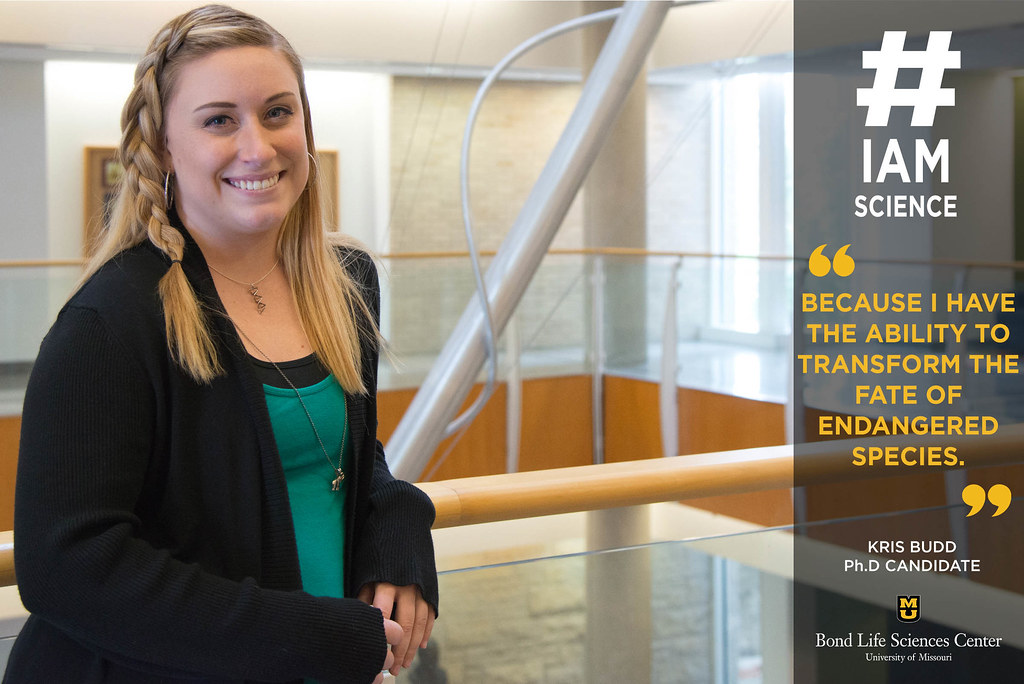
By Allison Scott | Bond Life Sciences Center
“#IAmScience because I have the ability to transform the fate of endangered species.”
If someone had told Kris Budd that she’d be investigating elephant feces on daily basis in her Ph.D. program, she wouldn’t have bought it. If they’d said she’d realize it’s a passion of hers, she would’ve been in shock.
As a third year Ph.D. candidate in Lori Eggert’s lab, Budd is able to do meaningful work that is helping endangered elephants through feces.
“I always wanted to work with an endangered species,” Budd said. “I’ve always been excited about this, and the more you find out about elephants, the more you love them.”
Budd receives samples of elephant dung from Southeast Asia, and singles out the elephant DNA from the other species present in the sample — most commonly microbes and insects, but sometimes even goats and humans.
“You have to be aware that there can be DNA from anything that walked by that day,” Budd said. “We have to use specific tools to make sure we just get the elephant DNA.”
“After processing, we use the Genomics Technology Core Facility in Bond LSC, which isn’t an easy task since we typically run hundreds of samples several times for a single study.” Budd said. “But they always do it with grace.”
Budd then uncovers the genetic makeup with the help of the Informatics Research Core Facility (IRCF) and meetings with members of Chris Pires’ lab in Bond LSC.
From there, Budd is able to input the DNA into a system and keep track of the elephants overseas. They, however, become way more than numbers to her.
“They might just be a sample in your data, but you get to know the elephants,” Budd said. “Elephants are so much more. There are so many different elements to them — genetics, behavior, and ecology. Their evolutionary history and family structure tells a story, all seen through feces.”
Her work is about to get a lot more hands-on next semester, as Budd will be traveling overseas to collect samples herself.
“We’re going in the spring and we’ll teach local technicians how to go about collecting samples,” Budd said. “We’ll collect a lot of samples of our own while we’re there, too.”
Budd will be able to determine what is happening with the elephant populations in Southeast Asia more closely then.
“There’s a big push with critically endangered species to translate data into something that can help them,” Budd said. “The samples I’m working on from Myanmar are actually an extinct population, but we want to re-wild similar elephants in the same location.”
Essentially, that would require Budd to find a genetically similar elephant population that would be most likely to thrive in the same environment.
While actually implementing the re-wild process won’t happen for a while, Budd is certain about the influence of Bond LSC in the elephant re-wilding’s future success.
“My work wouldn’t be possible without the people who work at Bond LSC,” Budd said.

